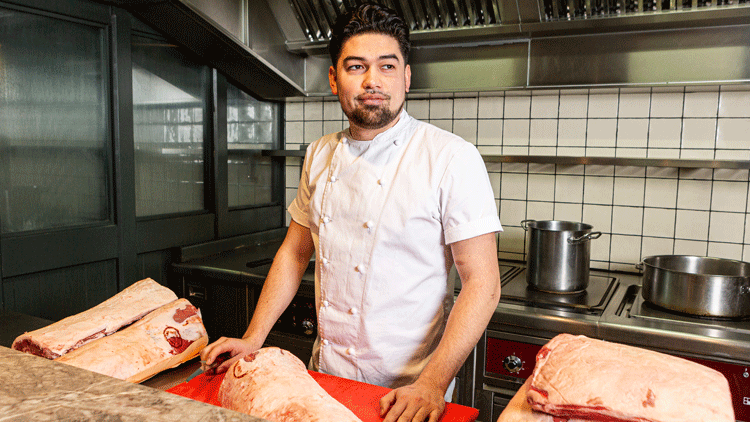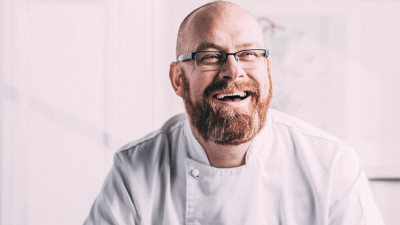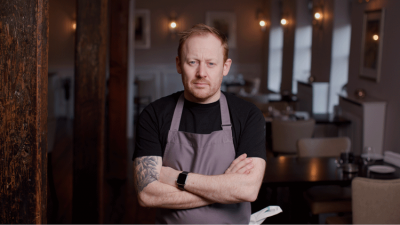Luke Selby: "We grow the most when we're forced to operate outside of our comfort zone"

To what extent have competitions such as National Chef of the Year had an influence on your career?
I guess I wouldn't be where I am today without competitions. But I have always seen them as something that complements what I'm doing. I've always been focused on my training in kitchens and making the right decisions in terms of who I work for. But in my free time I've tried to push myself in other ways.
You're keen not to be thought of as a 'competition chef'...
Yes that's right. The reason that I've done well in them is that I've learnt my craft in restaurant kitchens. But entering competitions has given me some amazing opportunities and opened lots of doors, not least the opportunity to work in Japan. I could have never afforded to live there without the backing of the Roux family (Selby won the Roux Scholarship in 2017 before going on to win the National Chef of the Year in 2018).
You've always worked in demanding kitchens, how compatible was that with competing?
It was always tough. I never wanted it to affect what I did at work so practice was always on my days off. I tried to keep work very separate from it, which often meant practicing and doing my mise en place for competitions in the middle of the night. I remember cycling home from work once with a whole sea trout strapped to the front of a Boris bike thinking 'what an earth am I doing?'.
You've won Young National Chef of the Year, National Chef of the Year and the Roux Scholarship. Which one stands out as the toughest?
It's difficult to say as they are all so different. Young National Chef of the Year was challenging in that it was a big step up from the smaller competitions that I'd done previously. National Chef of the Year is very different to the Roux Scholarship because it's done in front of an audience and there is a very tight timeframe to get three courses out. Plus you have the added pressure of the competition being judged by a very esteemed panel of judges. The Roux Scholarship is behind closed doors and more classically-oriented focusing on just one recipe, but it's also judged by very high profile chefs.
Would you say you're good at dealing with pressure?
Yeah I'd say so. I'm used to working in stressful environments and keeping my head down. It's important to not let things faze you in competitions. You've got to try your best and take things as they come. Don't overthink it. Things will go wrong much more than they do in a normal restaurant service - try and roll with it.
What tips would you give chefs looking to succeed in competitions?
If you know what you are cooking in advance run throughs are key. Look at each dish, analyse it and really make sure you can execute it within the timeframe. I didn't have a access to a professional kitchen in the run up to National Chef of the Year but Gary Jones (a former employer of Selby's) very kindly let me practice at Le Manoir. I spent about a week refining the dishes and did about four full run throughs ahead of the competition. I remember exactly what I cooked: seafood minestrone followed by roasted venison with celeriac and blackberry and finally pear almondine.
What advice would you give to someone looking to stand out in the paper judging stage?
If you don't get that right you're not going to get to compete so it's worth putting the effort in. It's also worth bearing in mind that it's usually done blind, so where you work isn't necessarily going to help you. Make sure you get the basics right and that it's clear, concise and that your recipe is not overly complicated. And don't wait until the very last minute to send it.
How do you keep organised on the day?
I approach things a bit differently to most other chefs. I don't really do checklists because I find you spend too much time fiddling about with them. I practice enough to know what needs to be done and when. It's pretty much instinctive at that point. But everyone works in different ways.
And finally, why should chefs consider entering cooking competitions?
They force yourself to put yourself out there. In a way it does not matter how far you get. It's always a great learning experience for chefs because we grow the most when we're forced to operate outside our comfort zone.
The National Chef of the Year competition is now open for entries. Click here for more information.
































